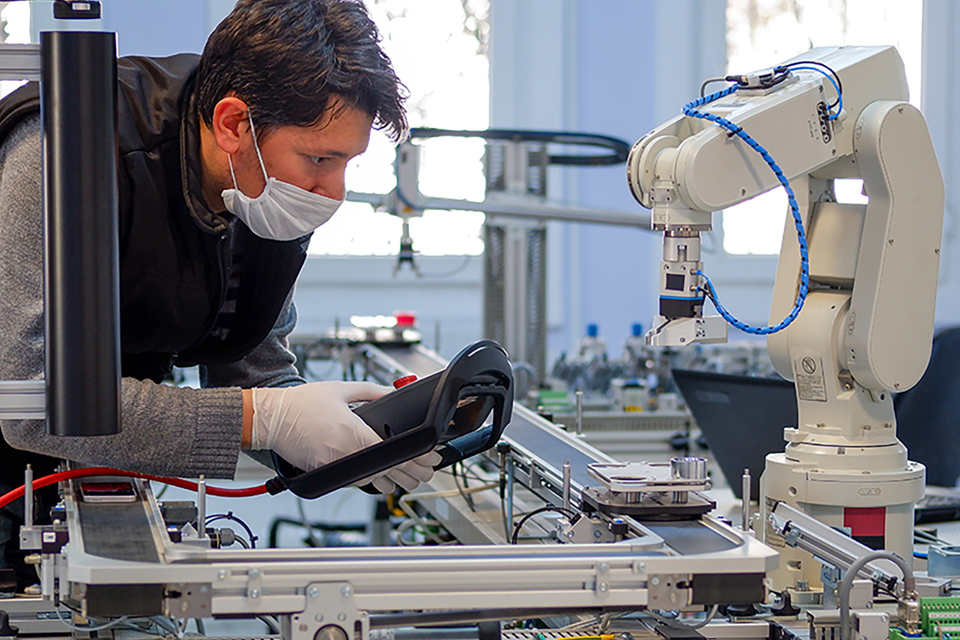Rapid manufacturing has become a key resource in the fight against COVID-19. As a relatively new technology, it offers several advantages over traditional manufacturing methods when it comes to creating medical supplies and equipment needed for the pandemic.
You may be wondering how rapid manufacturing makes such a big difference in this crisis, and what benefits healthcare workers and patients can expect. In this article, we'll explore the impact of rapid manufacturing in detail so you can see exactly why it's been so pivotal in the battle against COVID-19.
We'll discuss its advantages and potential challenges as well as how those on the frontlines are benefiting from this technology.
Overview of Rapid Manufacturing
Rapid manufacturing is quickly revolutionizing the way we create products, and it's making a real difference in the fight against COVID-19!
Rapid manufacturing uses 3D printing technology to produce goods quickly and cost effectively. This means that medical supplies such as masks, face shields, ventilators and other protective equipment can be produced on demand for hospitals or healthcare workers all over the world.
This allows these essential items to be made available quickly wherever they are needed most. Rapid manufacturing also makes it easier to produce custom-fit items for patients with specific needs – something which would otherwise take much longer with traditional methods of production.
As a result of this revolutionary technology, many lives have been saved during this pandemic, and it's only getting better as more advanced technologies are being developed every day.
Advantages of Rapid Manufacturing
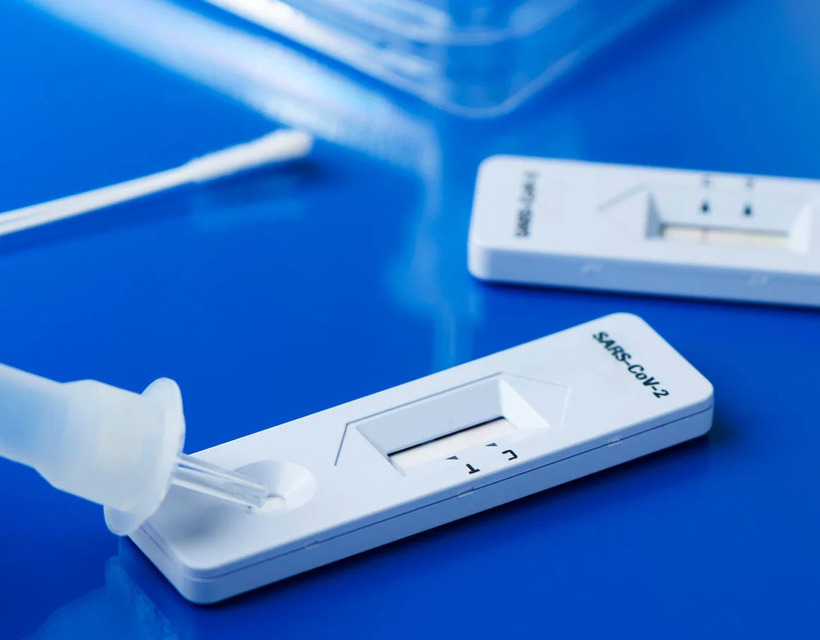
Rapid manufacturing is revolutionizing the way businesses are able to produce products and respond to customer needs. Through the use of specialized machines, rapid manufacturing offers increased speed and efficiency, cost savings, and improved quality control.
By leveraging advanced technologies like 3D printing, companies can now get their products to market faster than ever before while reducing costs and ensuring that each product meets high standards.
Speed and Efficiency
Rapid manufacturing has allowed us to respond quickly and effectively in fighting the pandemic. It has enabled us to produce critical items such as masks, ventilators, and protective equipment quickly and in large quantities, helping to alleviate the strain on medical professionals. This technology has also allowed us to manufacture testing kits faster than ever before, meaning we can identify cases more accurately and take action sooner.
The ability to rapidly produce these important resources is a major advantage that gives us an edge over other countries in our fight against COVID-19. We can get vital supplies out quicker, test more people in less time, accommodate sudden spikes in demand, and distribute resources with greater accuracy.
By leveraging rapid manufacturing technologies, we are not only responding faster but also making sure that those most affected by the pandemic receive the help they need - whenever they need it. Working together with a common purpose brings a sense of unity and belonging during times of crisis - something that's truly invaluable.
Cost Savings
You'll find that rapid manufacturing can make a considerable cost-saving difference, allowing us to effectively combat the pandemic.
Rapid manufacturing offers a level of affordability that was once impossible in traditional manufacturing. With this technology, companies can produce parts and components quickly and at much lower costs than traditional methods.
This is especially important in the fight against COVID-19 as it means more resources can be dedicated towards medical supplies and other vital items. In addition to savings on production costs, rapid manufacturing also reduces waste due to its speed and accuracy which further increases efficiency.
Therefore, with rapid manufacturing, we're able to save money while still producing quality products for the fight against this virus.
Quality Control
With rapid manufacturing, you can be sure of quality control, ensuring the best possible products in the battle against COVID-19.
With this technology, a wide variety of materials and components can be produced quickly and efficiently while maintaining tight tolerances to ensure accuracy. This means that medical professionals are able to access vital supplies faster than ever before.
Furthermore, rapid manufacturing is capable of producing intricate geometries with high precision which allows for better performance characteristics compared to traditional methods. This helps with creating medical devices and treatments that are more effective against the virus.
The accessibility of quality products makes a huge difference in the fight against COVID-19 as it ensures that those on the front lines have all they need to tackle the virus head on. Rapid manufacturing also enables medical personnel to get their hands on these items much quicker than was previously possible, allowing them to respond more quickly when lives are on the line.
As such, quality control is paramount in helping protect people from this deadly disease and rapid manufacturing is making a major impact by taking this task off healthcare workers' shoulders so they can focus on saving lives.
Impact on the Medical Supply Chain
You've likely heard of rapid manufacturing as a way to increase capacity and speed up production times. These are two of the key advantages that rapid manufacturing brings to the medical supply chain in the fight against COVID-19.
With rapid manufacturing, healthcare organizations can produce more needed items faster and get them into the hands of those who need them most.
Increased Capacity
Rapid manufacturing has enabled increased capacity of essential medical supplies and equipment to help combat the spread of COVID-19. This includes 3D printing technology, which can quickly produce items such as respirator masks and ventilators; automated production lines, which can quickly manufacture large quantities of medical supplies in a short period of time; and robotics, which can be used to rapidly assemble complex equipment made out of multiple components.
The increased capacity created by rapid manufacturing has been instrumental in providing much-needed relief during the pandemic. The ability to quickly create essential medical supplies and equipment has allowed hospitals and healthcare workers around the world to better respond to the crisis. This is especially true in areas where traditional supply chains have been disrupted due to the pandemic.
By utilizing rapid manufacturing technologies, organizations have been able to keep up with demand for critical items while also ensuring that they are produced safely and efficiently.
Faster Production Times
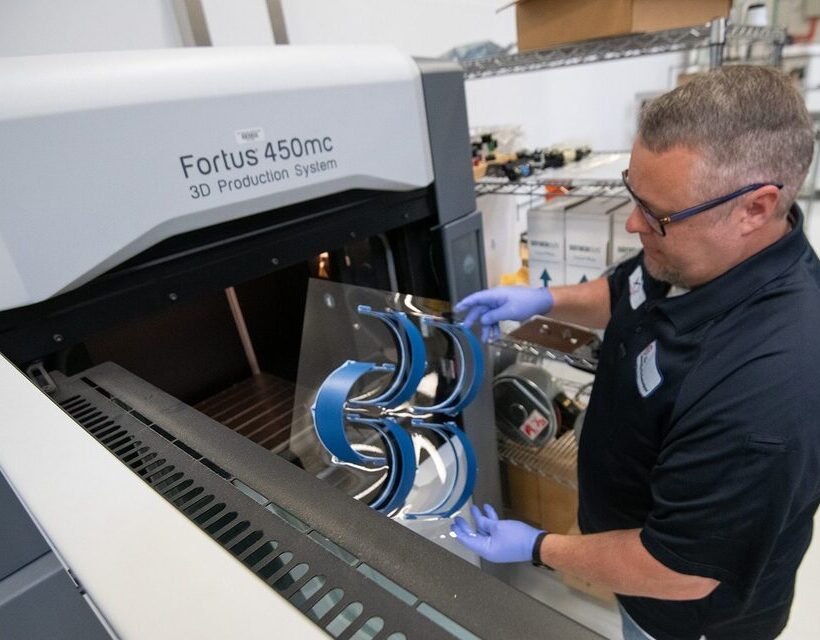
Rapid manufacturing has not only increased production capacity, but it's also making a difference by providing much faster production times. This is especially important during the fight against COVID-19, where speed and efficiency are essential to helping those in need.
You can rest assured that with rapid manufacturing, medical supplies and other resources can be produced quickly and efficiently to meet the demands of this pandemic. In addition, manufacturers are able to produce products more cost-effectively without sacrificing quality and safety standards – ensuring that everyone benefits from this new technology.
By relying on rapid manufacturing technology for faster production times, we can provide relief to those affected by COVID-19 more quickly than ever before.
How Rapid Manufacturing is Helping to Fight COVID-19
Rapid manufacturing has played an important role in the fight against COVID-19. It has helped to produce face masks, ventilators, and protective gear. Additionally, it has assisted with medical research. This technology is invaluable in keeping us safe.
Find out how rapid manufacturing has been used to help fight the pandemic and why it's such a valuable tool for healthcare professionals.
Production of Face Masks
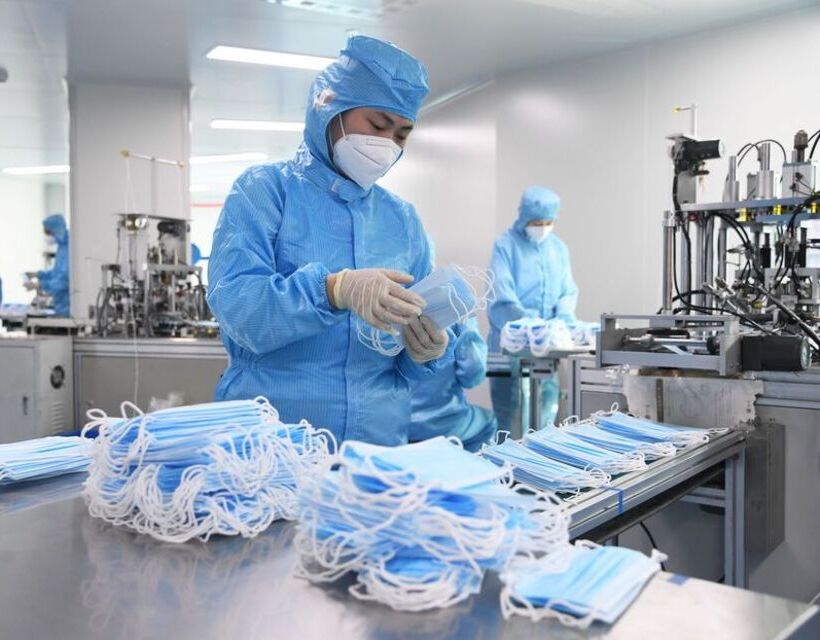
With lightning-fast speed, production of face masks has skyrocketed in recent months, providing an unprecedented level of protection for citizens around the world.
Rapid manufacturing is enabling companies to quickly and efficiently produce protective gear at a scale never seen before. This has allowed vulnerable populations to access essential forms of protection from the virus. It's also brought about a newfound feeling of safety and security for people everywhere who are worried they may be exposed to COVID-19.
Rapid manufacturing has made it possible for businesses to quickly respond to changing demand, ensuring that people get the supplies they need when they need them. The technology allows factories to swiftly adjust their operations in order to meet any fluctuating requirements, allowing them to create high quality products without compromising on time or cost.
With this new approach, manufacturers can stay ahead of the curve and provide much needed support during this global pandemic.
Ventilators and Protective Gear
The production of ventilators and other protective gear has been ramped up to meet the urgent demands of this pandemic, helping to safeguard people everywhere. You want to protect yourself and your family during these difficult times, and rapid manufacturing is making this possible.
3D printing technologies have enabled medical professionals everywhere to create much-needed protective equipment for frontline workers. This includes face shields, N95 masks, respirators, as well as more advanced medical devices like ventilators. By utilizing modern manufacturing methods such as additive manufacturing, companies are able to quickly produce high-quality pieces of equipment that can be used by healthcare providers around the world.
And with the help of volunteers from all over the globe, these essential items get distributed rapidly so that those in need can receive them in a timely manner. Rapid manufacturing is truly making a difference in the fight against COVID-19!
Benefits for Healthcare Workers
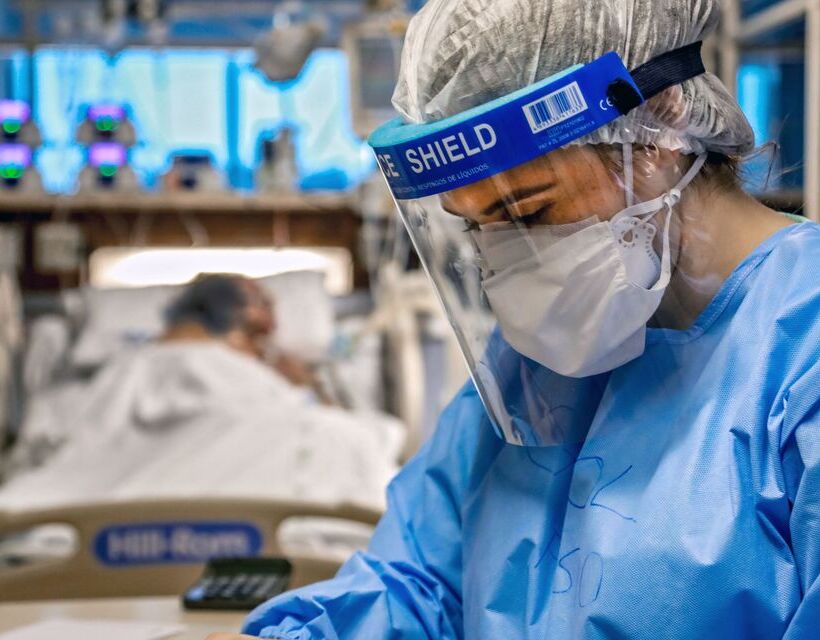
As healthcare workers tirelessly battle the pandemic, rapid manufacturing is providing a much-needed lifeline by supplying essential equipment quickly and efficiently. The production of ventilators and protective gear has been accelerated significantly, ensuring that medical staff have access to crucial resources in an ever-changing situation. This has enabled frontline workers to reduce the risk of their own exposure and provided them with much needed peace of mind as they continue to fight the virus.
Rapid manufacturing also allows for better control over quality assurance, ensuring that vital items are up to standard before being distributed. The impact of rapid manufacturing on the healthcare industry has been nothing short of remarkable. Healthcare workers now have better access to supplies they need for their job, reducing stress levels and allowing them more time to focus on patient care.
With this new technology, hospitals are no longer relying solely on donations but can now produce goods themselves at a fraction of the cost and time it would take otherwise. In addition, rapid manufacturing reduces waste by only producing what is necessary when it is necessary; eliminating unnecessary storage costs associated with traditional methods of production.
Benefits for Patients
The benefits of rapid manufacturing in the fight against COVID-19 not only extend to healthcare workers, but also to patients. Rapid manufacturing has enabled manufacturers to quickly create and produce essential medical supplies such as ventilators, face shields, and masks. This allows for easy availability of these supplies to those in need, resulting in faster access to much-needed medical supplies for patients.
Rapid manufacturing has also allowed for the creation of innovative technologies and products that are making a difference in patient care. For example, hospitals around the world have used 3D printed respirators during this pandemic. These devices provide improved ventilation and oxygenation capabilities, which helps save lives. Additionally, 3D printing technology is being used to create custom prosthetics for those who have lost limbs due to the virus.
Overall, rapid manufacturing is giving hope and offering solutions to many people affected by COVID-19.
Potential Challenges with Rapid Manufacturing
Though rapid manufacturing has been a game-changer in the battle against COVID-19, it's not without its challenges. Some of these challenges include:
- Cost:
- The cost of rapid manufacturing processes can be prohibitively expensive for many health organizations and individuals.
- It can also take more time to manufacture a product with more complex requirements, resulting in additional costs.
- Furthermore, as production is scaled up, there are often additional expenses associated with materials and labor that must be factored into the overall cost.
- Quality Control:
- Rapid manufacturing processes are often prone to errors due to the speed at which products are produced.
- Quality control measures must be put into place to ensure that only safe and effective products reach patients in need.
- Additionally, due to the nature of rapid manufacturing processes, there may not always be enough time for detailed testing before products are released on the market.
- Regulatory Requirements:
- In order for medical devices produced via rapid manufacturing to be approved by regulatory bodies, they must meet certain standards and requirements set forth by those bodies.
- This can add an extra layer of complexity when attempting to produce medical devices quickly and efficiently during a crisis situation such as COVID-19.
Despite these potential issues, however, rapid manufacturing has allowed health professionals around the world to quickly create new tools and solutions that can help save lives during this pandemic - making it an invaluable asset in our fight against COVID-19!
Conclusion
You've seen how rapid manufacturing has made a tremendous impact in the fight against COVID-19. It's provided medical supplies to healthcare workers and improved patient care. The benefits are undeniable. Rapid manufacturing has revolutionized the medical supply chain, allowing countries around the world to respond quickly and effectively to the pandemic.
This is just an example of how technology can be used for good during times like these. It's truly a beacon of hope for us all in what would otherwise be an age-old problem with no end in sight. Let's continue to harness this ancient yet innovative technique as we strive for a better tomorrow.
